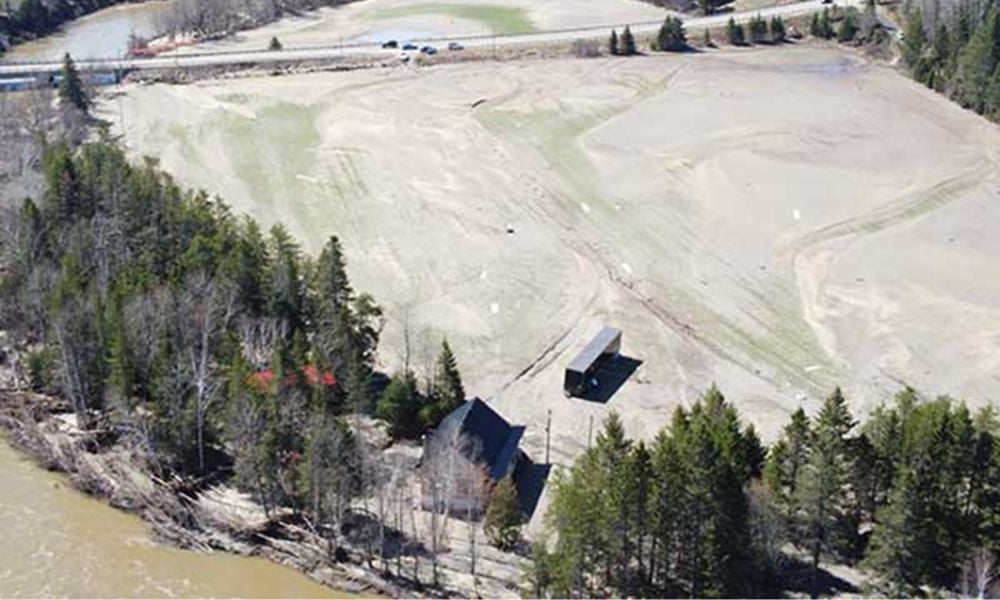CNESST investigation into drowning deaths of two firefighters reveals deficiencies

Firefighters in Quebec need to receive better flood intervention training when in school, according to an investigation report released today by the province’s workplace safety regulator.
The Commission des normes, de l'équité, de la santé et de la sécurité du travail (CNESST) report sheds light on the critical gaps in training and preparedness that it says contributed to the drowning deaths of two firefighters in May of last year.
"Developing specific training for flood response and integrating it into mandatory firefighter training courses is imperative," states the CNESST report. "This will equip firefighters with the necessary skills and knowledge to navigate water-related emergencies safely."
The CNESST also says 55-year-old Régis Lavoie, and 23-year-old Christopher Lavoie did not have the proper equipment to intervene in a water rescue.
The two part-time firefighters were trying to help residents trapped by rising waters in the town of Saint-Urbain. They were riding an ATV that got caught up in the current and was pushed up against a tree. The men fell off and were swept away.
"The lack of planning of preventive measures to manage flood situations led to poor management of the response, resulting in the drowning of two firefighters," states the report.
The regulator outlined the following recommendations directed at various authorities, including the Ministry of Education, urging the integration of flood intervention training into firefighter education programs.
CNESST Recommendations
- Ministry of Public Security: Develop guidelines for municipal emergency preparedness plans and support municipalities in their implementation.
- École nationale des pompiers du Québec: Integrate water intervention safety into firefighter training courses.
- Ministry of Education: Include flood intervention training in Fire Safety Intervention programs.
- Union des municipalités du Québec, Fédération québécoise des municipalités, and Association des chefs en sécurité incendie du Québec: Inform members of their responsibilities and ensure compliance with safety standards.
"It is crucial that all stakeholders work together to ensure that firefighters receive the training and support they need to carry out their duties safely," says the report. "We must prioritize the safety of our first responders and take proactive steps to prevent such tragedies from occurring again."
The CNESST will present its findings as part of a Coroner’s inquiry.
The CNESST's recommendations serve as a blueprint for enhancing flood intervention training and strengthening emergency preparedness. It can also serve as guidance to other jurisdictions across Canada where firefighters are often called upon to help during floods.





